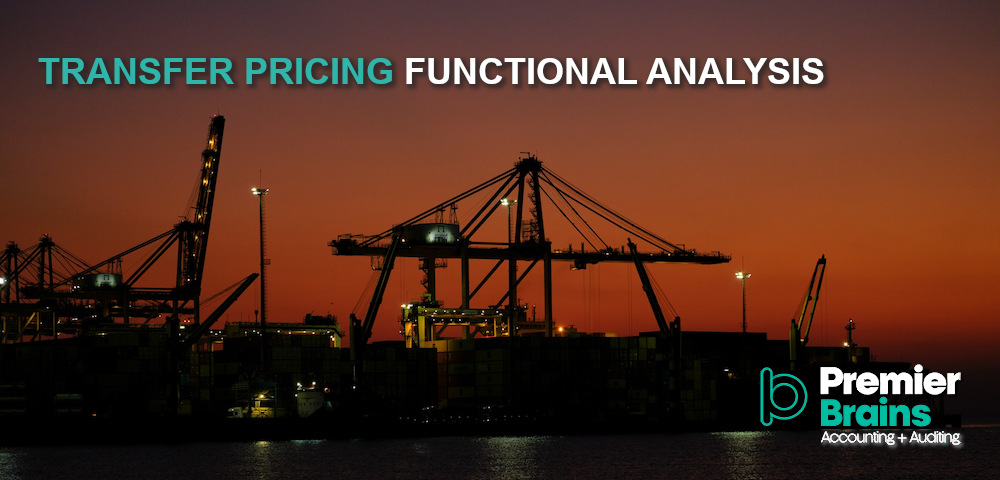Functional analysis is very important and OECD Transfer Pricing (“TP’) guidelines also place great significance on this for any examination of an enterprise’s transfer pricing.
Functional analysis involves identification of functions, assets and risks of a party to a transaction so that an accurate assessment can be made of comparability.
FUNCTIONS
The activities performed by each of the parties to the transaction are carefully analyzed. The focus is on the identification of critical functions, which add value to the transaction.
Key functions performed by the entities in a controlled transaction are compared with the functions performed in uncontrolled transactions.
Below are characteristics of some of the key functions:
- 1.
- Procurement
- a.
- If an entity is performing procurement activity, it can be expected to add value in terms of expertise in sourcing the products and negotiating prices with the suppliers and handling the contracting process.
- 2.
- Distribution
- a.
- The importance of this activity can be different under various industries e.g. in healthcare products distribution, higher skills and technical knowledge would be required.
- 3.
- Research and development (R&D)
- a.
- If a company is doing R&D, it becomes important to understand various factors such as what is the nature of R&D, who is taking strategic decisions related to the R&D, who owns and pays for R&D etc.
- 4.
- Intra-group services
- a.
- Some companies have centralized centers for providing support services to the group such as for finance, HR, IT etc.
- b.
- It will need to be analyzed how beneficial these activities are to the group and how unique they are vs if they are sourced from a third party.
- 5.
- Financing
- a.
- This is also a common function undertaken in multinational enterprises where one group company undertakes the treasury activity for the group and provides funds to other group companies via inter-company loans, cash pooling arrangements etc.
- b.
- In such cases, it becomes important to analyze the exact role being performed by the financing entity and what level of risks it is exposed to etc
ASSETS
Tangible and intangible assets need to be considered. It should be checked that which party owns the assets, which party uses the asset and how the owner is compensated.
Tangible assets, which may be relevant to be focused on, are:
-
◮
- Cash
-
◮
- Trade receivables
-
◮
- Inventory
-
◮
- Property
Intangible assets, which may be relevant to be focused on, are:
-
◮
- Trademarks, patents and copyrights
-
◮
- Manufacturing intangibles
-
◮
- Marketing intangibles such as trade names, customer lists, customer relationships etc.
RISKS
Risks, which need to be considered, are:
- 1.
- Market risk
- 2.
- Regulatory risk
- 3.
- Inventory risk
- 4.
- Contractual risk
- 5.
- Credit risk
- 6.
- Foreign exchange risk etc.
OECD TP guidelines include a six steps process for analyzing the risk:
- 1.
- Identify economically significant risks with specificity;
- 2.
- Determine how those specific risks are allocated in contractual arrangements;
- 3.
- Use a functional analysis to determine the potential impact of those specific risks. Identify which enterprises assume and manage the risks;
- 4.
- Analysis of Steps 1 to 3 to determine how is each risk actually managed by the members of the MNE group
- 5.
- Allocate the risk to the enterprise that has control over the risk and the financial capability to assume the risk
- 6.
- Price the transaction taking account of the allocation of the risk
Disclaimer:
This document has been prepared as a general guide. It is not a substitute for professional advice. Neither Premier Brains nor its partners or employees accept any responsibility for loss or damage incurred as a result of acting or refraining from acting upon anything contained in or omitted from this document. If you wish to be included on the regular mailing list for this newsletter, forward your request info@premier-brains.com
Premier Brains is a member firm of the Audit Trust and does not accept any responsibility or liability for the actions or inactions on the part of any other individual member or correspondent firm or firms.
If you would like to discuss Tax & VAT services, please drop us an email at info@premier-brains.com or call us at + 971 4 3542959.
 United Arab Emirates
United Arab Emirates

